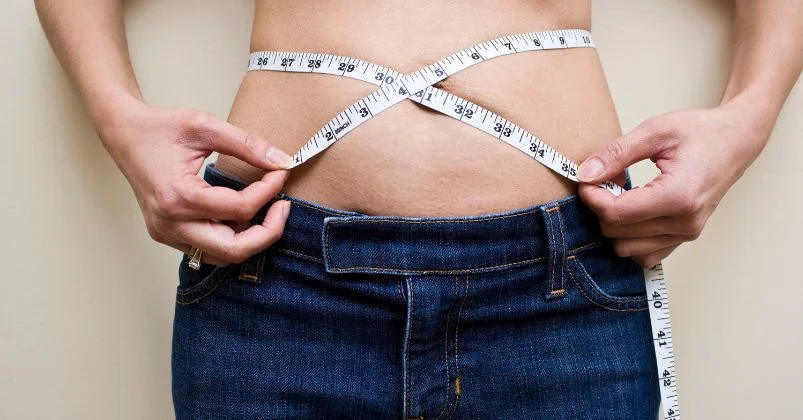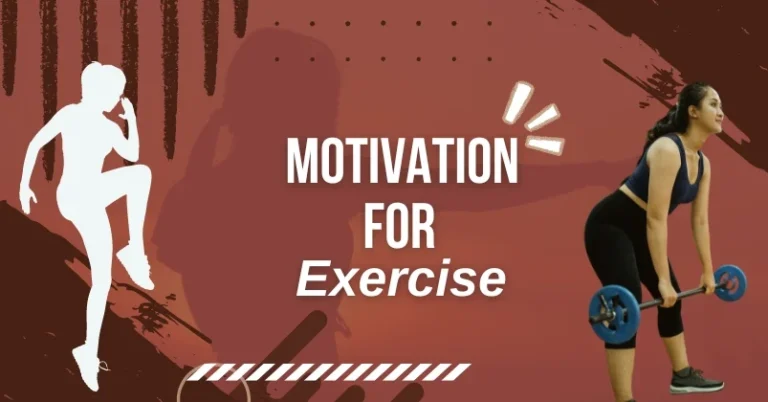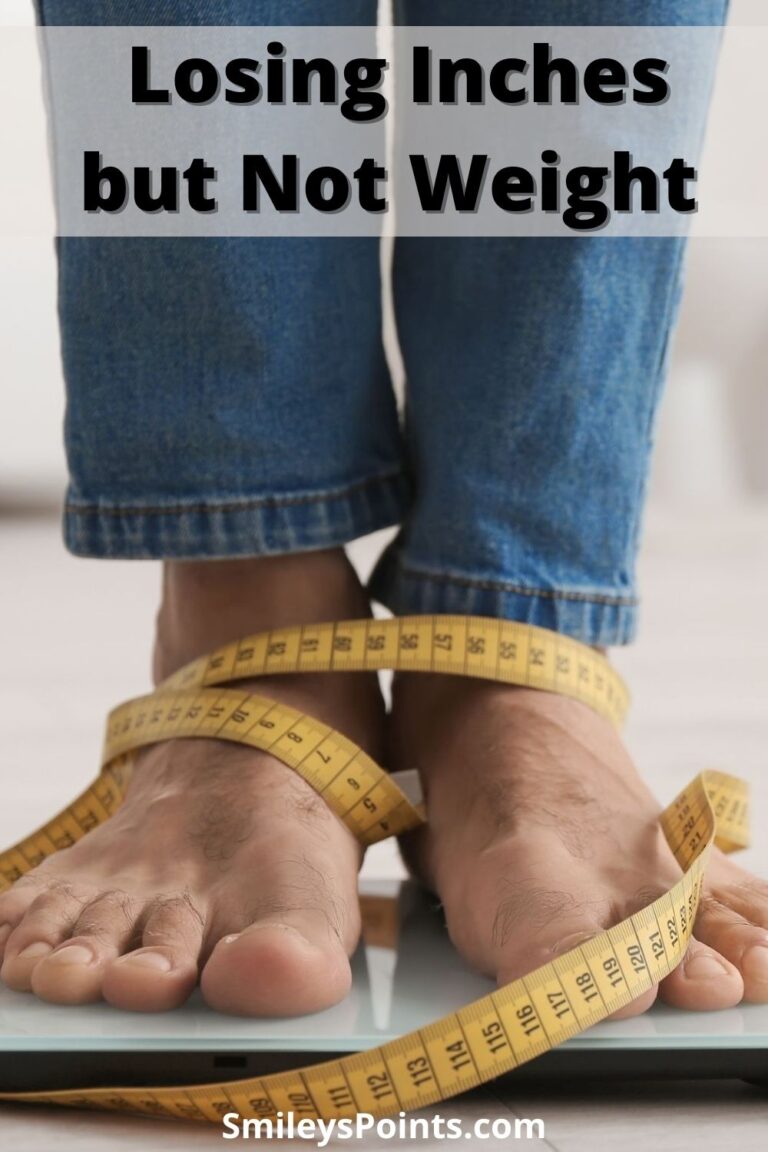The Paradox Of Losing Inches And Staying The Same
When attempting to lose weight, it's usual for many people to experience losing inches but not weight. It's possible to lose body fat and slim down your hips, waist, or other body portions without seeing a commensurate drop in your overall weight. This fact can be upsetting, particularly if you're striving to get to a certain weight on the scale.
Water, fat, muscle, bone, and other substances make up most of the human body. It's possible that a drop in any of these factors plays a role in weight loss. However, when someone loses inches, it often happens due to a drop in body fat and an increase in muscle mass. Even if the scale doesn't show a big drop in weight, this shift in body composition can result in better health.
To set realistic objectives and monitor progress toward a healthy lifestyle, it's critical to understand the distinction between reducing weight and decreasing inches.
Is Losing Inches But Not Weight A Serious Concern?
As long as it results from muscle gain and is not a symptom of a more significant health problem, dropping inches but not weight generally isn't a cause for major concern.
A change in body composition, such as a build-up in muscle mass and a decrease in body fat, which is typically seen as healthy, might be indicated by losing inches but not weight. It might, however, also indicate dehydration or a change in bowel habits.
It's always good to consult a healthcare provider for a thorough evaluation if you're noticing substantial changes in your body size or shape and are unsure of what's causing them. It is especially crucial if you also have other symptoms like exhaustion, appetite problems, or unexplained weight loss.
In some cases, it's crucial to discuss any concerns with your healthcare professional to decide the best course of action because rapid changes in body size or shape can occasionally be an indication of an underlying medical ailment. In addition to offering advice on how to have a healthy, balanced life, they can assist you in figuring out whether there is an underlying problem.
Why Am I Losing Inches But Not Weight?
You may be dropping inches but not weight for several reasons:
1. Gaining Muscle
As previously indicated, gaining muscle through resistance training and exercise can increase overall body size, even if your weight does not drastically alter. Exercises, such as weightlifting or bodyweight exercises, and a calorie-sufficient diet provide enough protein for muscle repair and growth.
However, the amount of muscle gained varies from person to person. It also depends on factors such as age, gender, training history, and genetics.
2. Hydration Levels
Yes, dehydration can lead to changes in weight. Your body weight may drop if you are dehydrated since water weight is lost throughout this process. This weight loss, though, is temporary and can be easily restored by consuming water and rehydrating the body. The body's metabolism can be impacted by mild to moderate dehydration, which can also make it challenging to lose weight or keep it off.
Keeping your body well-hydrated is crucial, especially if you're trying to control your weight. Enough water consumption helps keep your metabolism running smoothly and makes you feel fuller, which can help you stop overeating and promote weight loss. Aim for a minimum of eight glasses of water a day, and more if you are active or in a hot climate.
3. Food Consumption
Your body size and weight can also be affected by the kind and quantity of food you consume. Consumption of high salt or processed foods can result in water retention, which causes bloating and an increase in body size.
You also experience water retention in your body due to menstruation, stress, or increased cortisol levels. Certain diabetic medications, steroids, anti-inflammatory drugs, or supplements can also cause fluid retention in the body.
Whatever the reason may be, the weight gain here is temporary.
4. Hormonal Fluctuations
Your body's capacity to lose weight and the composition of your body can both be impacted by hormonal imbalances, such as those brought on by disorders like polycystic ovarian syndrome (PCOS) or thyroid.
Changes in hormone levels during menstruation can also briefly affect a person's weight and size.
5. Measurement Error
Variations in weight and inch loss can also be brought on by errors in the measurement equipment used, such as a bathroom scale or tape measure.
Hence, using various measurement methodologies might lead to various findings, so it's critical to be consistent in your approach.
6. Metabolic Changes
As you get older, your metabolic process naturally slows down, which makes it harder to lose weight and alters how your body is made up.
Remember that your weight is just one aspect that can be affected by many factors, and it might not necessarily reflect changes in your body composition. It's a good idea to keep track of several statistics, including your body fat percentage, waist size, and how your clothes fit, to have a more thorough understanding of your progress.
When Should I Consult My Physician?
You should consult your physician if:
1. You notice abrupt and major changes in your body's size or shape
If you see abrupt and noticeable changes in your size or shape, it may be an indication of an underlying medical condition (such as thyroid disorder) and should be assessed by a healthcare provider.
2. You also exhibit other symptoms
See a doctor if you encounter other symptoms besides changes in your body size or form, such as exhaustion, hunger changes, or unexplained weight loss.
3. You have a history of medical disorders
If you have a history of medical conditions, such as an endocrine disorder (thyroid, diabetes, menopause, glands), it's crucial to talk to your doctor about any changes in your body size or form to be sure your illness doesn't cause them.
4. You're worried
It's always a good idea to speak with your doctor for a thorough evaluation and advice on the best course of action if you're worried about changes in your body size or form.
Remember that every person has a unique physique and that lifestyle choices, genetics, and general health can all impact changes in body shape or size. Your physician can help you determine the cause of the changes and guide you on maintaining a healthy and balanced lifestyle.
What Are The Next Steps?
You may become anxious and demotivated if you don't get the outcomes you were hoping for. Just follow these next steps to include:
- Tracking Your Progress: To have a more complete understanding of your progress, keep track of your body measurements, body fat percentage, and how your clothes fit. You may incorporate programs like iTrackBites/Healthi and Noom to help you track food consumption, exercise, and the calories you burn.
- Maintaining A Balanced Diet: Limit your intake of processed and high-sodium foods, which can lead to water retention and bloating. Instead, eat a range of healthful foods as part of a balanced diet.
- Water Consumption: Drink plenty of water to stay hydrated and avoid water retention.
- Exercise: Exercise to increase your general fitness and grow muscular mass. Examples of this include resistance training and cardiovascular workouts.
- Avoid Being Fixated On Your Weight Alone: A scale's reading is but one component of the puzzle. Losing inches may indicate that you are growing muscle and burning fat.
- Rest: Ensure that you receive enough rest. Get at least 7-8 hours of good sleep per night if you want to lose weight.
- Relieve Stress: You can reduce your stress by engaging in breathing techniques, yoga, and meditation.
- Speaking With A Healthcare Expert: If your body size or form has changed suddenly or noticeably, or if you have other concerns, consult with a healthcare professional for a thorough evaluation and to decide the best course of action.
The Takeaway
To improve your health and fitness, it's crucial to realize that weight loss is not the primary success metric. In fact, as it demonstrates your success in shedding body fat and enhancing your body composition, dropping inches can be a more useful measure of your achievement. So, instead of getting disappointed if the scale's numbers aren't changing as quickly as you'd want, pay attention to the other wonderful changes your body is experiencing.
It's critical to remember that every person has a unique physique and that various circumstances might affect changes in body size or shape. You may promote your general health and well-being by monitoring your progress, eating a balanced diet, drinking enough water, and exercising.
FAQs
A: You are losing inches but not weight for many reasons, like if you are undergoing a recomp, if your bone mass has risen, if you're in a menstrual cycle, etc.
A: Consult a doctor if you have a history of a medical illness that may be affecting your weight loss or if you experience unexpected or quick weight loss.
A: Body recomposition, or body recomp, happens when you grow muscle while also losing fat.
References
https://fitbod.me/blog/losing-inches-but-not-weight/
https://www.medicinenet.com/losing_inches_but_not_weight_what_to_do/article.htm








